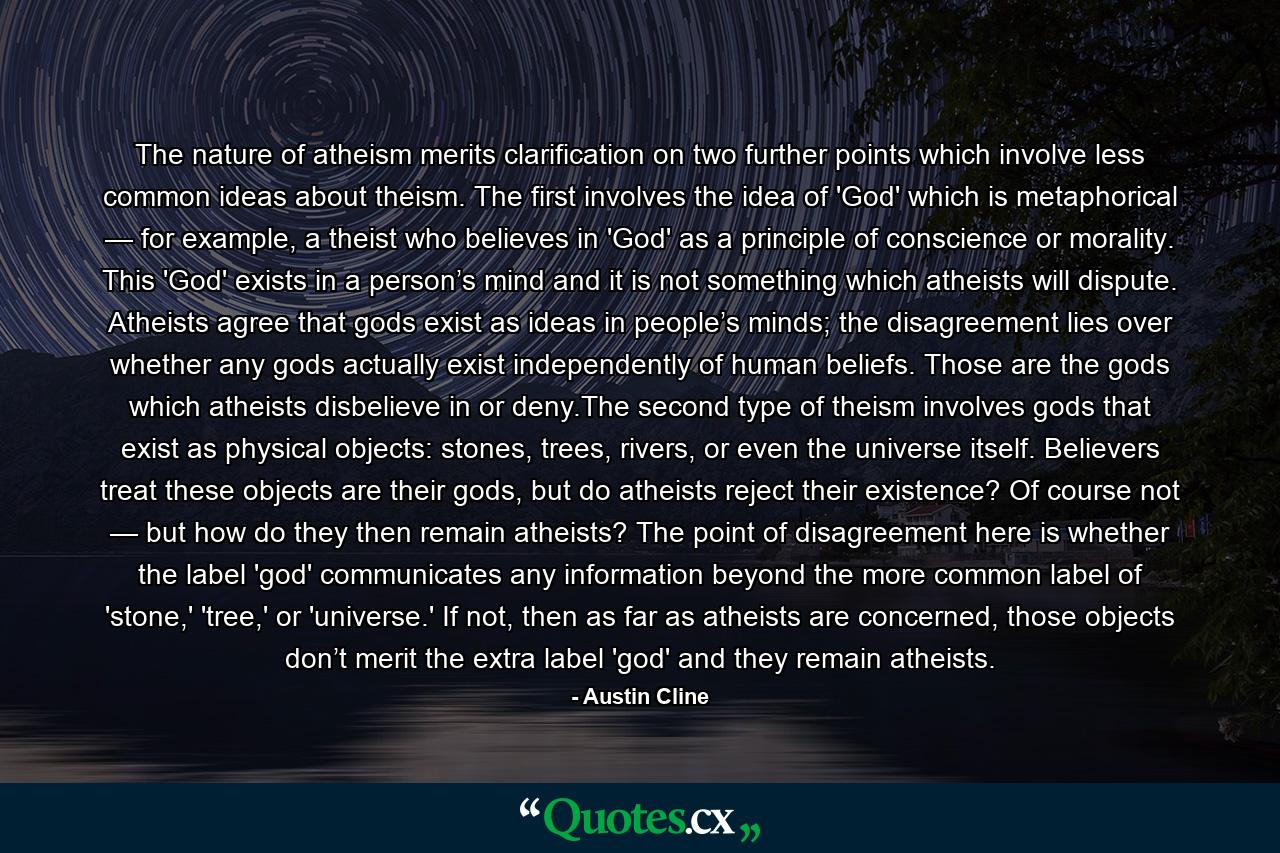The nature of atheism merits clarification on two further points which involve less common ideas about theism. The first involves the idea of ‘God’ which is metaphorical — for example, a theist who believes in ‘God’ as a principle of conscience or morality. This ‘God’ exists in a person’s mind and it is not something which atheists will dispute. Atheists agree that gods exist as ideas in people’s minds; the disagreement lies over whether any gods actually exist independently of human beliefs. Those are the gods which atheists disbelieve in or deny.The second type of theism involves gods that exist as physical objects: stones, trees, rivers, or even the universe itself. Believers treat these objects are their gods, but do atheists reject their existence? Of course not — but how do they then remain atheists? The point of disagreement here is whether the label ‘god’ communicates any information beyond the more common label of ‘stone,’ ‘tree,’ or ‘universe.’ If not, then as far as atheists are concerned, those objects don’t merit the extra label ‘god’ and they remain atheists.
